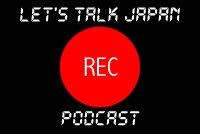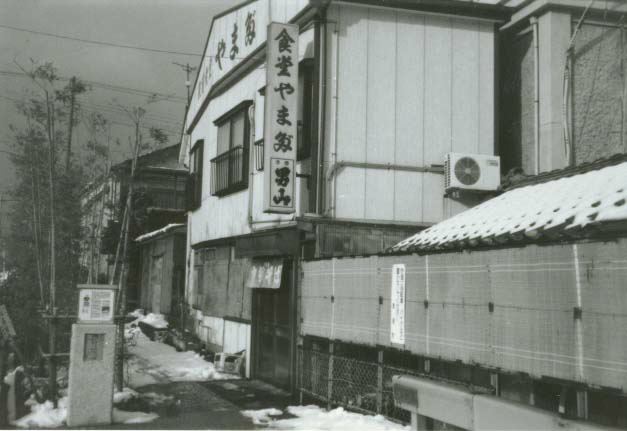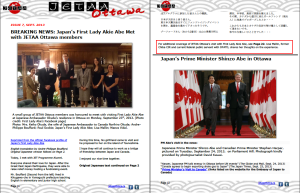Life As and After JET: Building Bridges
Recently posted on JETAA NSW site by Eden Law (Fukushima-ken, 2010-11):
The JET Programme has lead to many opportunities and careers, sometimes rather unexpectedly. Our Life After JET articles by former JETs gives an insight about their lives after the programme, and how it has shaped their careers and paths. We hope that it will prove useful as an insight for potential applicants into what we as ex-JETs got from our experience, and maybe provide some nostalgic memories for others. Please feel free to contact us if you want to write about your own experience!
Nathan Poore was an Oita CIR from 2004 – 2007, after which he used his JET experience working as an Events Coordinator and Translator for Waseda University in Tokyo until returning to Australia in 2010. He gives us a fascinating insight into what CIR does, as opposed to the life of an ALT.
In July this year, it will be ten years since I first arrived in Japan as a participant on the JET Programme. Looking back at my JET experience, my fondest memories are of the wonderful people that I had the pleasure of meeting and getting to know personally during my placement. Apart from being an unforgettable experience on a personal level, JET also became a fantastic professional opportunity. I learnt and developed a wide range of transferrable skills, even though I often did not realise this at the time.
As an undergraduate student, early on I had decided that I wanted to apply to the JET Programme. The grassroots exchange opportunity on offer to live and work in Japan, whilst utilising and improving my Japanese language skills was exactly what I wanted to do after graduation. A number of friends had also successfully participated in the programme, and highly recommended the experience. With the support and encouragement of my Japanese lecturers, I submitted my application. After an interview, I was fortunate to be accepted to the programme in the role of Coordinator for International Relations (CIR). My placement was in a small town called Ume*, located deep in the mountains of southern Oita Prefecture, Kyushu.
I arrived in Japan in July of 2004. My new supervisor and a few other colleagues made the two hour journey north from Ume to greet me at Oita Airport. Nearly ten years later, I still remember how friendly and welcoming my new colleagues were at the airport that day. I soon realised this sense of openness and warm hospitality were characteristics shared throughout the town. I spent the first few nights in Ume with my supervisor and his lovely family. It was summer, and those first days were spent in a haze of introductions to colleagues and neighbours, trying out the delicious local cuisine and attempts at getting used to the southern Oita dialect. I remember feeling at the time that my textbook Japanese was too formal, and I was eager to learn as much of the local language as possible.
My role as a CIR was to facilitate grassroots cross-cultural exchange activities in my area. In reality, this meant organising cultural events for the local community, visiting schools and other facilities, attending local events and basically getting out amongst the community and interacting with as many people as possible. Working together with my Japanese colleagues and other CIRs placed nearby, I planned various cultural events from proposal stage to running the event on the day. This involved gaining the support of my direct supervisor and section chief for each project, starting with a written proposal. With often limited or no budget allocated for these kinds of activities, it was important for me to consider the resources already available to receive the green light. I had many ideas (not all of them practicable) and after each project I sought feedback to try and make the next one more successful. During my time as a CIR, some of my particularly memorable events and activities included teaching Australian-style bush dancing to senior citizens, accompanying a group of locals on an official trip to Queensland as an interpreter, and publishing a commemorative collection of essays from all of the previous CIRs placed in Ume, to name a few. I could not have achieved what I did without the support and guidance of those around me, both inside and outside of the office.
My local CIR network was an incredibly diverse, talented group of people from across the globe, always happy to offer their support and share their skills and expertise. As many JET participants will have experienced, my role as a CIR extended further than the usual nine to five. Whether I was buying groceries at the supermarket or attending a local festival, I was always meeting new people and having conversations about life in Australia and Ume. These kinds of interactions were some of the most enjoyable and memorable for me personally. After living in Ume for three years, I was fortunate to have made many close friends, and feel truly grateful for the kindness extended to me. On a professional level, participating in the JET Programme taught me to be flexible in my thinking, and how to communicate and work successfully with different kinds of people. I learnt how to be resourceful, resilient, and proactive in order to achieve my work goals. I improved both my written and spoken business Japanese, in addition to public speaking in both English and Japanese. I gained experience in event planning, translation and interpreting, and teaching children and adults. These types of skills and experiences that JET participants gain are highly transferable across various roles, and personally speaking I have greatly benefited from my JET experience in my professional life since completing the program.
For new JET participants, I highly recommend getting involved with your local community as much as possible to make the most of your experience. For those who are returning home, I encourage you to stay in touch with your friends and colleagues from Japan, and get involved with your local JET alumni chapter, which is a great way to network and maintain your connection with Japan.
*Ume amalgamated with Saiki City in March of 2005, together with seven other nearby towns and villages.
Let’s Talk Japan Podcast, Episode 19 – Japanese Translation & Interpretation
Let’s Talk Japan is a monthly, interview format podcast covering a wide range of Japan-related topics. Host Nick Harling (Mie-ken, 2001-03) lived in Japan from 2001 until 2005, including two great years as a JET Program participant in Mie-Ken. He practices law in Washington, D.C., and lives with his wife who patiently listens to him talk about Japan . . . a lot.
In this episode, Nick speaks with Stacy Smith about the joys and challenges of working as a professional Japanese translator and interpreter. Stacy worked as a Coordinator of International Relations (CIR) for the Japan Exchange Teaching (JET) Program in Kumamoto prefecture before eventually returning to the United States and turning her love of Japanese into a career. When not on the road with work, Stacy lives in New York City.
Together they discuss how Stacy became interested in the Japanese language; how she went about deciding to become a professional translator & interpreter; the impact of technology; and tips for improving your own Japanese study habits
To learn more about Stacy, check out her website as well as her blog posts for JETwit. Also, here’s a great article about Japanese translation and interpretation.
If you have not already done so, be sure to “Like” the podcast on Facebook, and follow the podcast on Twitter @letstalkjapan. Additionally, please consider leaving a positive rating and/or review in iTunes.
Kyodo News “JET Alumni” series: Jenson Deokiesingh (Toyama)
News agency Kyodo News has recently been publishing monthly articles written by JET alumni who were appointed in rural areas of Japan, as part of promotion for the JET Programme. Below is the English version of the column from December 2013. Posted by Celine Castex (Chiba-ken, 2006-11), currently programme coordinator at CLAIR Tokyo.
*********
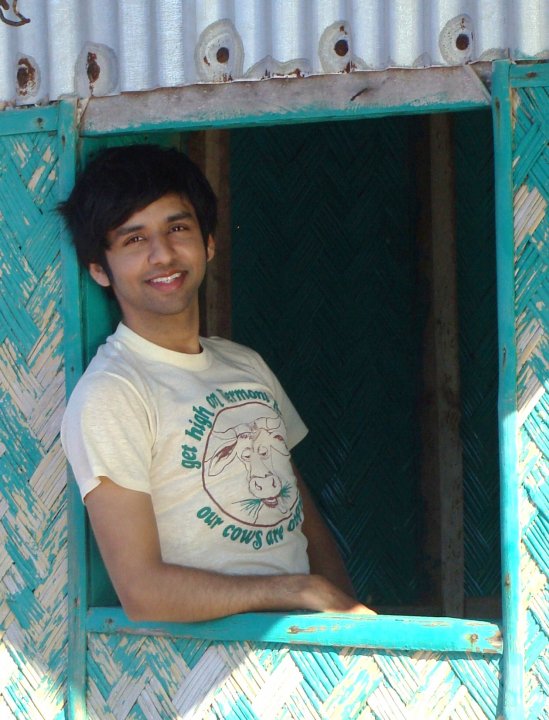
I am reminded that my love story was very much a mutual one and I fondly think, “In life we meet, only to part, so we can meet again.”
Untitled
I have always loved Yayoi Kusama. There’s an unexplainable magic and unorthodox beauty about her signature polka dot patterns. I had seen compelling images of her kaleidoscopic, “Love is Calling,” installation designed specifically for the Mori Art Museum’s 10th Anniversary Exhibition and immediately knew I had to see it.
On September 1st, my last day in Japan and ironically the last day of the “All You Need Is Love” exhibition, I went searching for Kusama to bid her a final farewell.
As I meandered from one provocative exhibit to another, I found myself riveted to the entrance of the section, “Losing Love”. Written on the stark white wall, in simple black text, were the words: Great love stories are often about the encounter with and subsequent loss of loved ones. I stood there, in a trance, repeating these words, over and over, until they became deeply etched in my memory.
A film of tear glazed my dark brown eyes; wedged in my throat was a painful lump; and my heart slowly crumbled with each excruciating beat it gave. The inevitable truth I was desperately trying to avoid was now blinding me in a sobering reality. My life as a JET, my Japanese love story, was irrefutably over.
On Friday, October 18th, I had my first job interview since returning to my vibrant and colourful country of Trinidad and Tobago. Truthfully, the interview was going terribly. A frightening combination of nerves and adrenaline had left me uncharacteristically inarticulate. I was about to cite it as one for the history books, when the interviewer inquisitively said, “Please tell me about your experience on the JET Programme.”
That one sentence was all I needed to give me the confidence I had momentarily lost. With an inescapable smile imprinted on my face, I gleefully declared that living and working in Japan have been incontrovertibly the best experience of my life thus far. And, it truly was.
My first years in Toyama are as vivid and clear as Toyama’s spring mountain waters. The hot embarrassment pulsating through my body as I wished the staff after a long day’s work “Gochisousama deshita (Thank you for the feast)” instead of the customary “Otsukaresama deshita (Thank you for your hard work)” still turns my brown cheeks rouge. Excitedly waking up early in the morning for my first school photo, wearing my best suit, whistling as I biked to work, and then having a crow defecate on my new suit still brings me uncontrollable laughter. Taking a lunch break at the school’s garden, reading Haruki Murakami’s “Sputnik Sweetheart” and then being stung by a several caterpillars still gives me chills. However, crazily running into the staff room, shouting, “Itai! Abunai! Itai! (Pain! Dangerous! Pain!)”, and having my vice principal heroically take the school’s vacuum to vacuum my back change those shudders into immeasurable smiles. Read More
Kitcher’s Café #003: Making the Most of Your Network
Kitcher’s Café, a new series by Lana Kitcher (Yamanashi-ken, 2010-12) is an assortment of articles, topics and commentary written for the JET Alumni community. Lana currently serves as the Business Development Associate at Bridges to Japan, a New York-based cross-cultural consulting firm founded by JET alum Jennifer Jakubowski (Hokkaido, 1995-97).
Dear recent JET returnees and current “job hunters,”
 I was given the opportunity to speak at the JETAANY Career Forum in New York City a few weeks ago. Approximately 25 recent returnees (plus JET alumni going through a career transition) attended the event and were able to learn from the presenters, and also from one another, about how to successfully land a job in today’s economy. We learned that it is important to keep strategies current as technology continues to change and as the methods of yesterday are not necessarily effective for our search today.
I was given the opportunity to speak at the JETAANY Career Forum in New York City a few weeks ago. Approximately 25 recent returnees (plus JET alumni going through a career transition) attended the event and were able to learn from the presenters, and also from one another, about how to successfully land a job in today’s economy. We learned that it is important to keep strategies current as technology continues to change and as the methods of yesterday are not necessarily effective for our search today.
I would like to share with you some of the points from my presentation called “Making the Most of Your Network,” in case some of you are also going through this transition now. When I first returned home from the JET Program I had a really difficult time figuring out how to start the job search. At that point my only full-time job had been teaching English in Japan, and I didn’t know how to start looking for a new job from scratch. It took me until mid February to get a job, and I really wish someone had told me what I needed to hear earlier.
Kyodo News “Rural JET alumni” series: Elizabeth Gordon (Iwate)
News agency Kyodo News has recently been publishing monthly articles written by JET alumni who were appointed in rural areas of Japan, as part of promotion for the JET Programme. Below is the English version of the column from November 2013. Posted by Celine Castex (Chiba-ken, 2006-11), currently programme coordinator at CLAIR Tokyo.
*********
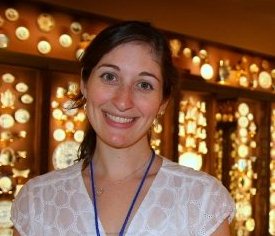
“I discovered through these exchanges that the people with whom I was talking wanted to know as much about me, about Chicago and about America as I wanted to know about them, Iwate and Japan. Through these interactions over the course of two years I began to gain a small understanding of the subtle nuances that were part of the culture in which I was living.”
Originally from Chicago, Elizabeth Gordon (Iwate-ken, Ninohe-shi, 2003-05) holds a Bachelors Degree in Psychology with a minor in Japanese Studies from Northwestern University, IL, and a Master’s degree in East Asian Studies from Columbia University, NY. She spent two years teaching English in rural Iwate before joining the Japan Foundation in New York as a Program Officer. She currently works as the Director of Private Events of the Adler Planetarium in Chicago.
Soba Diplomacy
Noodle making is an art, not to be taken lightly. Only a true master can produce the perfect noodle. After the wooden board is cleaned, the ingredients are kneaded in perfect rhythm until the correct consistency is achieved, and only the master knows for sure when that is. The rolling pin goes back and forth in a circular motion but forms a perfect rectangle, which is folded in half, then in half again, and in half again. Ever so delicately, the master cuts, slice after slice, all exactly the same width. They are cooked for just the right amount of time and then served with a simple dipping sauce sprinkled with scallions. The movements were ingrained in his muscles. I imagine he could have completed the whole process with his eyes closed. There is simplicity in the process, but the flavor is layered and complex.
When I arrived in Ninohe City, Iwate Prefecture in the summer of 2003 as a participant on the JET Program, I did not know a soul, nor had I ever heard of Iwate Prefecture. There was a short orientation in Tokyo, followed by a shorter orientation in Iwate’s capital city of Morioka. It was on the final day of orientation in Morioka that I met my supervisor, Mr. Sato. He picked me up and we drove the one and a half hours through the countryside back to Ninohe City. Mr. Sato did not speak much English and his heavy Iwate dialect was difficult for me to understand. We did, however, find common ground in a little bit of sports but mostly through food. I listed all of my favorite Japanese dishes, and he loved the fact that I could eat with chopsticks. He brought me to the Board of Education office and showed me my desk, which would be my home base for the next two years.
There was no rest for the weary, however. Before I could sit down I was whisked away on a driving tour of the entire city. We stopped at my two junior high schools and one of the eight elementary schools at which I would be teaching. I was asked to give a short self-introduction at each location. We also stopped at city hall to meet the mayor, and at the bank to open an account. Back at the board of education it was suggested that I be taken to the grocery store before I was dropped off at home for the evening. Read More
Kyodo News “Rural JET alumni” series: Nic Klar (Niigata)
News agency Kyodo News has recently been publishing monthly articles written by JET alumni who were appointed in rural areas of Japan, as part of promotion for the JET Programme. Below is the English version of the column from October 2013. Posted by Celine Castex (Chiba-ken, 2006-11), currently programme coordinator at CLAIR Tokyo.
********
Originally from Australia, Nicholas Klar (Niigata-ken, Itoigawa-shi, 1995-97) wrote the book “My Mother is a Tractor” about his life as an ALT in Omi, Itoigawa, Niigata-ken. After JET he worked for many years as a college counsellor and History teacher in international schools before returning to Japan to live. He now runs a small business in the Japan Alps, “Explore the Heart of Japan” as well as a popular travel website (http://myoko-nagano.com).
Remember that here all is enchantment, – that you have fallen under the spell of the dead, – that the lights and the colours and the voices must fade away at last into emptiness and silence. –Lafcadio Hearn
It was a stark winter’s day as usual in Niigata-ken, grey like sodden blanket. Not one that I had set out on seeking ghosts, but it suited the mood. As I changed trains in Naoetsu for Ōmi the old tempura stand I had been hoping for a snack at was still there, but today it was closed. It seems even the sturdy yukiguni could not stand the sort of weather that was being hurled at them this winter from across the Japan Sea. I settled into my seat, its soft orange covers familiar like an old friend, and waited for the delayed departure. I scrubbed the mist from the brown streaked windows with my hand as the motor idled and the minutes slipped by. Outside schoolboys in their traditional Prussian kit seem oblivious to the biting gusts of artic-like snow. Eventually with the sound of the station attendants whistle the doors snapped shut and the blue and white carriage groaned away from the platform.
As we crossed over the dark frigid waters of the Himegawa almost an hour later I grew excited. I hadn’t been back to the haunts of my old town for years. It was an unplanned visit and no-one really knew I was coming. I looked over for the local chugakko as the train passed by, obscured now by the construction of the new Hokuriku shinkansen. Framed behind those were the mountains I had loved so much. So many times I had taken my bike up into those North Alps making new discoveries, getting lost in the awesome beauty of its nature. Days of sunshine, days of rain. How I missed them. And the ghosts that inhabited them.
To the right there was a slight glimpse of my former apartment block. Not mine anymore, not for many years. In fact I think it now lays empty, apart from maybe a ghost or two, as the town depopulates. Tall, grey, forbidding – once referred to by a friend as, “…classic 1950’s communist Romanian style architecture”. The memory of that remark brought a brief smile to my face. Yet, it is the only place I will ever live in that has a sea view at the front and the mountains at the back. Grand views of God’s great vista on tap.
When the doors clunked open at Ōmi eki it was if nothing had changed. The chimes rang the same they had all those years ago and the black asphalt platform lay several centimetres thick with windswept snow. It felt soft under my feet as I began my ascent up the cold cement stairs. Standing in his post was my first metaphorical ghost – Watanabe-san the station master in the same blue-clad uniform, looking not a whit older than when we had last met a few years ago. He didn’t recognise me of course, even though I had taught his daughter at Ōmi chugakko. During my stay many of the station attendants had greeted me by name each time I passed through the gate. The inside of the station was a time capsule still painted the same green, apart from a more modern poster here and there, populated by even more ghosts of my memories. Local oba-chan in the waiting room still sat chatting on wooden bench seats around the kerosene heater behind glass doors. The three old shuttered-up ticket windows still existed – a sad reminder from the more grandiose boom days of Ōmi. Perhaps they were stubbornly retained in the forlorn hope that those times may yet return once again. Read More
CLAIR Magazine “JET Plaza” series: Anthony Bianchi (Aichi)
Each month, current and former JET participants are featured in the “JET Plaza” section of the CLAIR Forum magazine. The November 2013 edition includes an article by JET alumn Anthony Bianchi. Posted by Celine Castex (Chiba-ken, 2006-11), currently programme coordinator at CLAIR Tokyo.
********
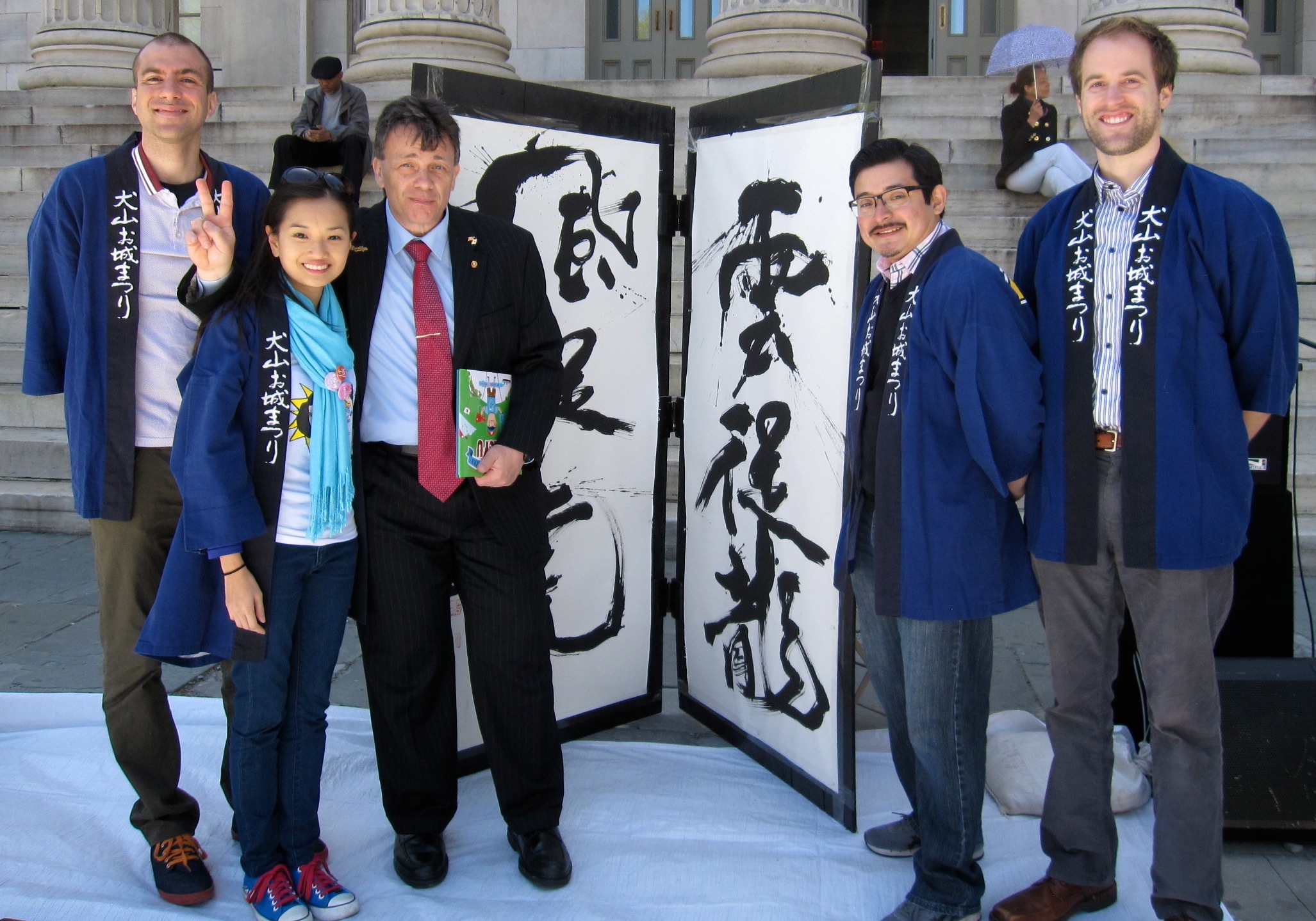
“Once you are in the programme, you are in the programme for life. As an Italian kid from the streets of Brooklyn, I get that. Like they say, when you’re a JET you’re a JET all the way, from your first cup of tea to your last hanami.”
A native of Brooklyn, New York, Anthony Bianchi (Aichi-ken, Kiyosu City, 1989-91), graduated from New York University with a degree in film making. After working on a number of television programs in Hollywood, he joined the JET Programme and spent two years working as an ALT in rural Aichi. A few years later, after overcoming many difficulties, he started the Native English Teacher (NET) Program, a teachers programme tailored for Inuyama City. Feeling there was a wall between the citizens and the city hall, he decided to run for the office and was voted into the city council of Inuyama City, Aichi Prefecture in April 2003. Anthony is currently serving his third term.
JET Generations
As anyone who has done so knows, living and working overseas in a different culture has a profound effect on all sides.
I have written before about how being on the JET Programme changed my life. To make a long story short, I would definitely not be here in Inuyama doing what I am doing had I not been involved in JET. Sometimes it still amazes me how things worked out. I mean, sometimes while I am making an argument on the council floor about some very local issue I still think, “How in the world did I end up here?” Conversely, I wonder at times what I would be doing if I had not joined JET some 25 years ago. Definitely something very different and most likely not as rewarding.
But the JET experience is certainly not only about what you get out of it, as I mentioned at the top, it is about the effect it has on all sides. As time passes I realize more and more that being a JET alumnus is a living thing that goes on after your contractual duties end. I still meet people involved with the programme that leads to great relationships and opportunities. Especially opportunities to give others even a small glimpse into another culture like the one we had by being part of the JET Programme. I am always impressed by the willingness of JET alumni to give back. A couple of summers ago I was asked to be on a panel at a national conference in Washington DC. Of course, there again, I met many outstanding alumni who are doing great things to promote cultural exchange and understanding between Japan and their home country. But I also realized that there is something about meeting former JET participants that has a camaraderie that is different and,in many ways, surpasses any other alumni association that I have known. I include in this group also Japanese staff and officials who have worked on the programme.
I would like to talk about a recent example. Out of my office, we run an exchange program called B. Bridges. We are a volunteer exchange group in our tenth year of existence. The idea for the group was seeded at an event the Brooklyn Borough President,Marty Markowitz, held for me at Borough Hall after my first election in 2003. There I was reacquainted with the administration of Xaverian High School. On that same trip I visited the school before returning to Japan. During that visit we decided to hold some kind of exchange.
LifeAfterJET: Transitioning Your Teaching Experience
This feature comes courtesy of Tammy Wik (Ishikawa-ken, 2007-2010). JET Alums fall into two different camps. Some leave their teaching days behind in Japan without ever turning back. Others are just dying to find ways to keep on with the classroom. In this article, Tammy shows how far you can take the English teaching route.
Posted by blogger, podcaster, and prefectural neighbor Jon Dao (Toyama-ken, 2009-12).
Posted by Gemma Villanueva (Fukushima 2008-11). She is the editor for the JETAA Ottawa Newsletter.
Message from the JET Desk:
The Embassy of Japan requires Paper Selection Committee Members to help select the 2013-2014 JET Programme candidates.
Paper Selection Committee members review and evaluate submitted applications according to criteria determined by the JET Desk and assist with other administrative duties required. The period of employment will begin on November 14, 2013 and end on January 14, 2014 (excluding weekends and Embassy holidays). Hours of work will be from 9am-5pm Monday to Friday at the Embassy of Japan in Ottawa. Remuneration will be disclosed to successful candidates.
The ability to work full-time during this period is preferred. Please submit your resume with a cover letter in English to Sadaf Taqvi before 5:00 p.m. on October 28th, 2013 by email to sadaf.taqvi@ot.mofa.go.jp.
• Strong command of English
• Experience in administrative duties
• The ability to work on a team
• Understanding of the working culture in Japan
• Canadian citizen or permanent resident
We thank all candidates for their interest. However, only those candidates whose skills and experiences best match the requirements of the position will be contacted.
Job posting also on the Embassy of Japan’s website: http://www.ca.emb-japan.go.jp/
CLAIR Magazine “JET Plaza” series: Suzanne McMillan (Ehime)
Each month, current and former JET participants are featured in the “JET Plaza” section of the CLAIR Forum magazine. The October 2013 edition includes an article by JET alumn Suzanne McMillan. Posted by Celine Castex (Chiba-ken, 2006-11), currently programme coordinator at CLAIR Tokyo.
********

“Working in the media and recruitment space requires a high level of networking ability and the confidence to quickly reach out and engage with new people. My time spent in Japan provided me with this skill set along with resilience and the ability to adapt quickly to changing circumstances.”
Originally from Northern Ireland, Suzanne McMillan (Ehime-ken, 1998-2001) holds an MA in History from Aberdeen University in Scotland. Her media career began in the UK when she joined the BBC initially as Researcher and later as an Assistant Producer. She has held the positions of Chairperson within the JETAA NI Chapter and NI Country Representative within JETAA International. Suzanne is currently a Project Manager and BDM Executive at Webpublication in Sydney, Australia where she coordinates digital publishing projects.
The Time of my Life
Nervously twiddling my thumbs, I sat before the interview panel and hoped that my answers would bring me a step closer to my long awaited place on the JET Programme. What had brought me to this point in my life? Well, as a child a favorite uncle had told me many tales of his exotic life in Japan and passed onto me the gift of a hand towel imprinted with a map of Shikoku. This tattered piece of history proudly hung on the wall of my university dorm room and later traveled with me on my flight to Tokyo Orientation; beginning my new life in Japan.
For the next three years, life as an ALT provided so many memorable experiences. I shared stories with teachers, students and fellow JET participants; discussing UK sports, changing political events in Northern Ireland and the different approaches to education and family life. Local neighbors became my friends and my knowledge of Japanese history grew with any tale they would tell of their past. The world seemed a smaller place and I realized the impact of JET; cultural exchange that reaches a deeper level and enables lifelong friendships that are priceless.
Even now memories of JET spring to mind during everyday tasks; the particularly cold winter when the supervisor at my BOE bought all JET participants a puffer jacket to keep warm, ensuring that we could all be spotted at a distance of 100 meters waddling with the extra bulk. Warmth feels my heart when I recall the kindly teacher who delivered boxes of mandarin oranges to your front door if you happened to be sick. I have never been able to hold a mandarin since without seeing his caring face. And yes, I hold myself fully responsible for many Japanese adults who I taught when they were kindergarten age and who now having an Irish lilt to their accent after repeating key English words after me several times over. Read More
Life After JET: It’s Hip to be Square
Recently posted on JETAA NSW site by Eden Law (Fukushima-ken, 2010-11):
The JET Programme has lead to many opportunities and careers, sometimes rather unexpectedly. Our Life After JET articles by former JETs gives an insight about their lives after the programme, and how it has shaped their careers and paths. We hope that it will prove useful as an insight for potential applicants into what we as ex-JETs got from our experience, and maybe provide some nostalgic memories for others. Please feel free to contact us if you want to write about your own experience!
Kenneth Pinyopusarerk, who hails from Canberra, Australia, was a 2003-2006 CIR who worked in Saigawa (now Miyako), Fukuoka-ken. A man with a lifelong passion for two things: Japanese culture and computer games, he managed to combine the both and land a dream job at Square Enix in Tokyo where he currently works today. The only downside to his job is having to turn down countless requests from friends for “A Realm Reborn”, the latest in the Final Fantasy franchise.
Twenty years ago, on a crisp Sunday morning in Canberra, I had a life-changing encounter. I was strolling through the local Trash & Treasure when I stumbled upon a pre-loved cartridge of Final Fantasy II*, lying upon a splintery foldout table. Drawn by some unknown force, I paid the $40 asking price—a small fortune for a 14-year-old in 1994—without so much as an attempt to haggle. Thus began my enduring love affair with the video game developer Squaresoft, now known as Square Enix. Had my pimply teenage self been told that he would one day work for this company, he would have scoffed and promptly resumed playing whatever game it was he was obsessed with at the time.
Since childhood, I’ve had an affinity with Japanese culture. I attribute this to Read More
Help a JET alumna fight for her life
Thanks to JETAA Northern California’s Mark Frey (Kumamoto-ken, 2002-06) for sharing this:

One of my close friends on JET, Tonisha Bell-Alston (Kikuyo-machi, Kumamoto-ken, 2003-05) was diagnosed with a very rare cancer earlier this year and is now fighting for her life.
If you’d like to join me in helping her, her friends have started a donation site to help with her medical costs: http://www.youcaring.com/medical-fundraiser/-teamtbellalston/96899
Tonisha is a strong, cheerful, wonderful person (and loving mother of two), as those of you who know her know. She is exhibiting those same qualities as she fights this disease. Please pass this on to others who may be interested in helping.
Tonisha’s powerful blog of her experience: http://www.caringbridge.org/visit/tonishaalston Here’s an excerpt from the “My Story” section in the beginning:
“Welcome to my site. Join me in the fight of my life! Please send your prayers, thoughts, kind words, well-wishes, and jokes my way. On February 27th I was diagnosed with synovial sarcoma, a very rare soft tissue cancer. Now, I can honestly say I’m one in a million :) Since discovering the cancer in my left thigh, it has metastasized to areas of my lungs. At one point I was hoping to avoid chemotherapy with a lifestyle change, but now chemo is the best option. I’m ready to beat this thing and put this chapter of my life behind me….”
Thank you,
Mark Frey (Kumamoto, 2002-06)
Kyodo News “Rural JET alumni” series: Daneeta Loretta Jackson (Fukuoka)
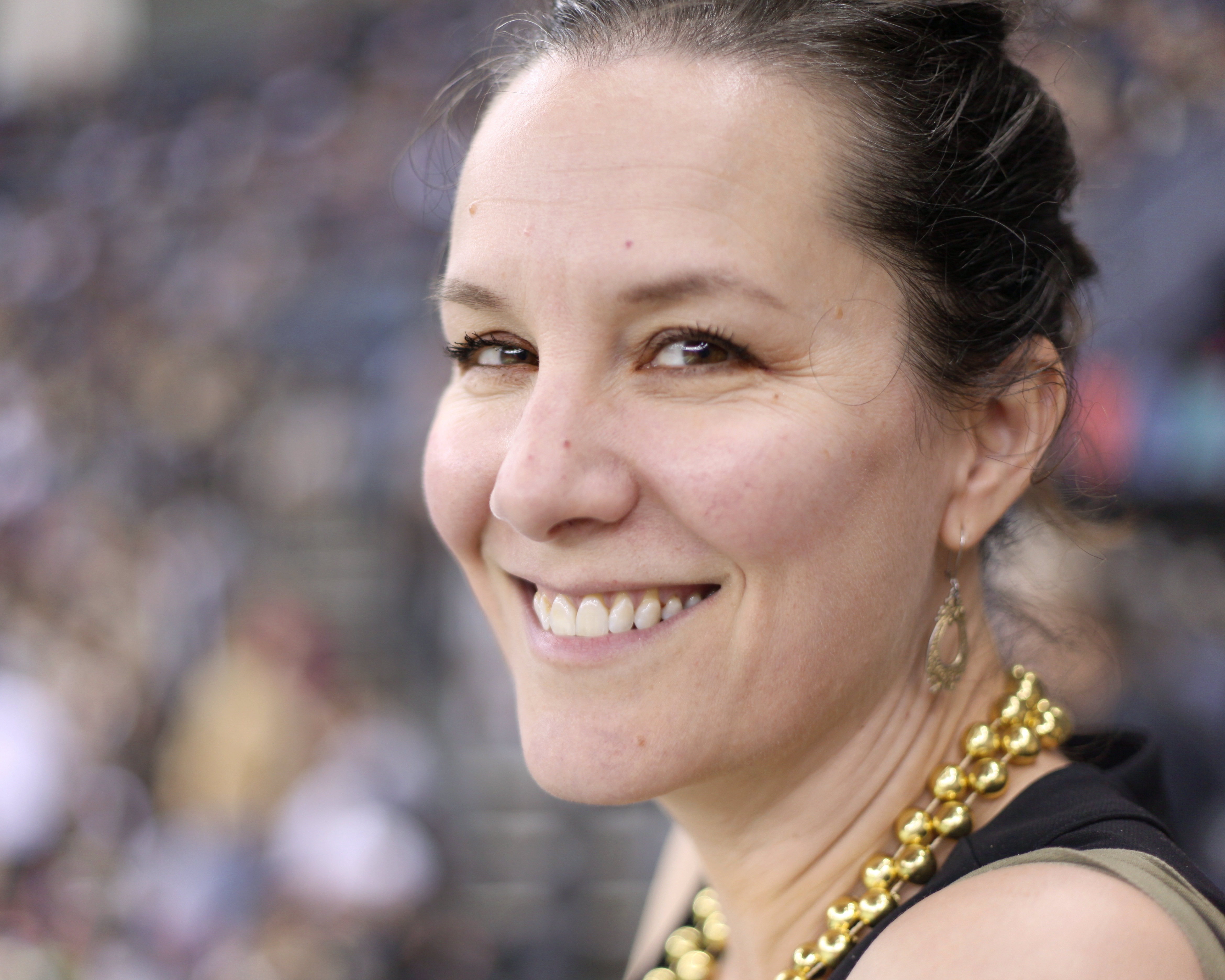
“My JET programme experience and my seven years in Japan have had a profound influence on me. It changed me into a more peaceful, communal person.”
News agency Kyodo News has recently been publishing monthly articles written by JET alumni who were appointed in rural areas of Japan, as part of promotion for the JET Programme. Below is the English version of the column from September 2013. Posted by Celine Castex (Chiba-ken, 2006-11), currently programme coordinator at CLAIR Tokyo.
********
Daneeta Loretta Jackson (Fukuoka-ken, Buzen-shi, 1993-95) was born and raised in the backwaters of Southeast Louisiana. She was educated at public school where she discovered her love for storytelling. She holds a B.A. in English from Loyola University of the South, an M.A. in English from George Mason University, and an M.A. in the Art and Technique of Filmmaking from the London Film School. Her hobbies are international travel, watching movies, anything having to do with dogs, and sleeping. She works as a writer and filmmaker and is a Creative Producer at the ElekTrik Zoo, an arts partnership she co-founded with her husband, Patrick Jackson. She joined the JET programme in 1993 because she wanted adventure. It had a profound affect on her and changed the course of her life.
I was a JET Programme participant from 1993 to 1995 in Buzen-shi, Fukuoka-ken. I never expected to go to Japan. I never dreamed about it when I was a child like so many of my counterparts did. I don’t mean to sound flippant, but the JET Programme for me was a kind of accident. It is too long of a story to recount here. In short, my husband applied for the both of us. He requested a rural post in Fukuoka-ken because a boy from his Japanese baseball team in California was from Fukuoka. When he got word we had been accepted, he told me we were going to Japan. I had about two months to prepare.
Before I knew it, I was on a plane to Tokyo in July of 1993. The first few days were a whirlwind. The orientation in Tokyo and the jet lag made it seem like I was in some sort of dream. I had no idea what awaited me in the countryside, I couldn’t speak much Japanese, and everything seems so strange… so different from my native Louisiana. Read More
Get the latest issue of the JETAA Ottawa Newsletter
Via JETAA Ottawa. Posted by Gemma Villanueva (Fukushima 2008-11), the editor for the JETAA Ottawa Newsletter.
Download your digital copy of the JETAA Ottawa Newsletter now!
What’s inside this issue?
Happy reading!
Book: “This Japanese Life” published by JET alum blogger Eryk Salvaggio
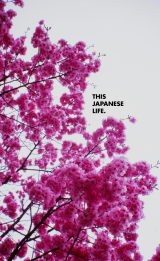 Thanks to AJET Chair Kay Makishi for the heads up on Fukuoka JET alum Eryk Salvaggio who writes the blog “This Japanese Life” and recently published a book by the same name. You can read more about Eryk in this Japan Times interview with him from 2012.
Thanks to AJET Chair Kay Makishi for the heads up on Fukuoka JET alum Eryk Salvaggio who writes the blog “This Japanese Life” and recently published a book by the same name. You can read more about Eryk in this Japan Times interview with him from 2012.
About the book: http://thisjapaneselife.org/this-japanese-life-the-book/
Most books about Japan can tell you how to use chopsticks or say “konnichiwa.” Few tackle the real stress of life in a radically different culture.
The author, a three-year resident and the writer and researcher behind one of the best Japan blogs, tackles the thousand tiny uncertainties of life abroad with honesty and wit.
Perfect for anyone about to leave home for Japan or elsewhere, This Japanese Life will deepen any reader’s understanding of Japanese culture as it’s fused into a method of dealing with the hardships of working and living there.
About Eryk:
Eryk Salvaggio was an American newspaper editor in Bangor, Maine before teaching English in Japan with the JET Program. He lived in Fukuoka City from 2010-2013, writing a blog, This Japanese Life, about Japanese culture and the tiny anxieties of being an expatriate.
The site was named one of the best Japan Blogs by Tofugu and was spotlighted by The Japan Times. Salvaggio has written for McSweeney’s, The Japan Times, Tofugu and Kulturaustausch.
His work as a visual artist has been covered in The New York Times and elsewhere.
He currently lives in London.

